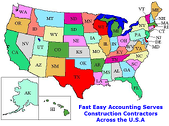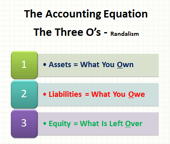A Construction Bookkeeper's Guide to Smarter Production for Small Contractors

Why "Doing the Work" Isn't Enough
Many contractors assume that once the job starts, the hard part is over. But production is where the majority of the risk lives:
- Labor costs can balloon
- Materials may get wasted or delayed
- Clients can change their minds mid-project
- Subcontractors may not show up when they're supposed to
- Scope creep can kill your margins without you realizing it
From a bookkeeper's point of view, this is when the numbers begin to go awry.
Profitability doesn't just come from winning jobs—it comes from controlling how they're delivered.
What "Delivering Profitably" Actually Means
To deliver projects profitably, you need to finish the job:
- On budget
- On schedule
- With the client happy enough to pay (and refer you)
It's not just about good craftsmanship. It's about project management. Whether you're a solo operator or have a small team, production needs structure. Fortunately, it doesn't need to be complicated.
Where Small Contractors Lose Profit During Production
Before we dive into solutions, let's look at where money is most often lost on the job site:
1. Untracked Labor
If you don't know how many hours you or your crew are spending on a job, you can't compare it to your estimate. It's one of the most common profit-killers we see in the books.
2. Material Overruns
Materials get lost, over-ordered, or wasted—especially if you're not reconciling purchases to job estimates.
3. Unbilled Change Orders
Clients often add or alter project elements. If those changes aren't documented and billed, you're giving away free work.
4. Delays and Downtime
Time is money. Waiting on materials, subs, or client decisions can derail your schedule and cost you future jobs.
5. Scope Creep
"Can you just add this one little thing?" becomes a margin-eating monster when not adequately managed.
Now, let's talk about how to prevent those losses and protect your bottom line.
7 Ways to Deliver Projects More Profitably
1. Start with a Clear Scope and Signed Agreement
It may sound simple, but many contractors begin work without a detailed, signed agreement. You need:
- A detailed scope of work
- Payment milestones
- A change order policy
- Completion criteria
This sets expectations and gives you leverage when things change (and they will).
2. Create a Simple Project Timeline
Even a basic calendar or whiteboard showing:
- Job phases
- Material delivery dates
- Key milestones
Suppose you're using software like Buildertrend or Jobber, great. If not, even a shared Google Sheet can work. The goal is visibility.
3. Track Labor in Real Time
You can't manage what you don't measure. Use time tracking tools (like ClockShark or QuickBooks Time), or even a shared text log, to record:
- Who worked
- For how long
- On which part of the job
This allows you (and your bookkeeper) to identify when jobs are dragging and compare actual versus estimated hours.
4. Monitor Materials Closely
Set up a simple system to:
- Track what materials were ordered
- Match receipts to jobs
- Avoid duplicate purchases
If you have frequent material overruns, your bookkeeper can help you adjust future estimates and avoid surprises.
5. Enforce a Change Order Policy
This one is HUGE.
Every time a client asks for something outside the original scope, pause and issue a change order. Even a one-page form signed via email or a mobile app is sufficient.
Change orders should:- Define the change
- List any added costs or time
- Be signed before work continues
When this is routine, you stop giving away "just one more thing" for free.
6. Communicate Early and Often
Most client disputes happen when they're left in the dark. Set the standard for regular updates:
- A weekly progress email
- A shared photo log
- A short call every Friday
This maintains high trust and prevents minor issues from escalating into unpaid invoices or negative reviews.
7. Review Project Profitability After Completion
After every project, sit down with your bookkeeper (or even just your notes) and ask:
- What was the estimated vs. actual cost?
- Where did we exceed our budget or deadline?
- Did we bill for all extras?
- What should we do differently next time?
This post-job review turns every project into a learning tool that improves your future estimates, planning, and pricing.
Where Bookkeeping Supports Better Production
As your construction bookkeeping specialists, we can help you:
- Track job costs accurately during the project
- Alert you when a job is going over budget
- Ensure change orders are captured and billed
- Break down labor and materials per project
- Provide job-by-job profit reports
In short, good production data = good financial reporting. And when we work together, we can spot patterns that help you grow smarter.
The Results of Controlled Production
When you focus on project delivery as intentionally as marketing and money management, you'll start to see:
- Jobs finishing on time
- Less rework and missed items
- Higher profit margins
- Happier clients (which means more referrals)
- Reduced stress and better control of your schedule
Over time, this builds a reputation that attracts higher-quality clients, enabling you to raise your rates with confidence.
Final Thoughts
Build Systems, Not Just Projects
You know how to build a deck, remodel a kitchen, or manage a crew. But your business needs structure, too. When you build systems around how you deliver your work, you reduce chaos and protect your profits.
Pillar 3: Production isn't about doing more—it's about doing smarter. With a bit of planning, tracking, and review, you can make every job a stepping stone to a stronger, more profitable business.
Want Help Tracking Job Profitability?
If you're tired of guessing how much money you're really making on each job, we can help you set up:
- Job costing systems
- Labor and material tracking
- Change order logs
- Profit and loss reports per project
Let's get your numbers working for you.
Book a free consultation today and let's build better systems together—so you can build a better business.
About The Author:
 Norhalma Verzosa is a Certified Construction Marketing Professional and serves as the Web Administrator of Fast Easy Accounting, located in Lynnwood, WA. She holds a Bachelor's Degree in Psychology and is a Certified Internet Web Professional, with certifications in Site Development Associate, Google AdWords Search Advertising, and HubSpot Academy. She manages the entire web presence of Fast Easy Accounting using a variety of SaaS tools, including HubSpot, Teachable, Shopify, and WordPress.
Norhalma Verzosa is a Certified Construction Marketing Professional and serves as the Web Administrator of Fast Easy Accounting, located in Lynnwood, WA. She holds a Bachelor's Degree in Psychology and is a Certified Internet Web Professional, with certifications in Site Development Associate, Google AdWords Search Advertising, and HubSpot Academy. She manages the entire web presence of Fast Easy Accounting using a variety of SaaS tools, including HubSpot, Teachable, Shopify, and WordPress.
OUTSOURCED ACCOUNTING FOR
THE BUSY CONTRACTOR
IN A MOBILE ENVIRONMENT

|

|

|

|
Download the Contractors APP today from the App Store or Android Store
Access Code: FEAHEROS
Click here to download the App on Android:
Click here to download the App on iOS:
Simply scan the QR code or search for ‘MyAccountants’ in the App Store and enter the Access code: FEAHEROS to utilize the powerful App features and capabilities and benefit from having our Construction Accounting App at your fingertips, 24/7."
PS: Even if you are not a Construction Contractor, you will find plenty of benefits in the app, so we invite you to download it, too! It's Free, so why not?




























